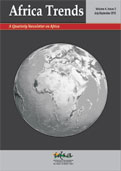Indian Naval Sales – The Cautious Emergence of a New Supplier
Should GRSE and GSL deliver satisfactory services to their export customers, there is considerable potential for India to position itself as a competitive supplier of small and medium warships and patrol crafts.
- Sanjay Badri-Maharaj |
- June 22, 2016 |







